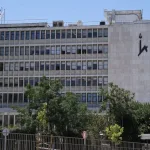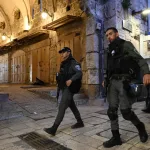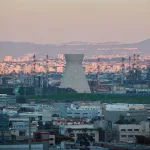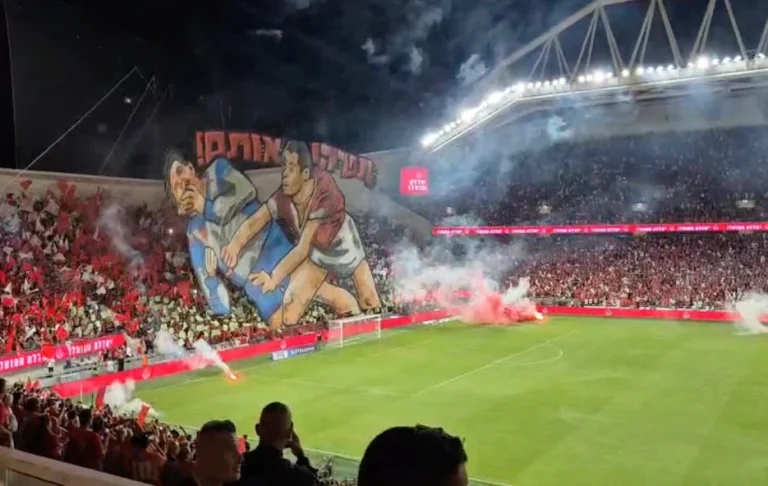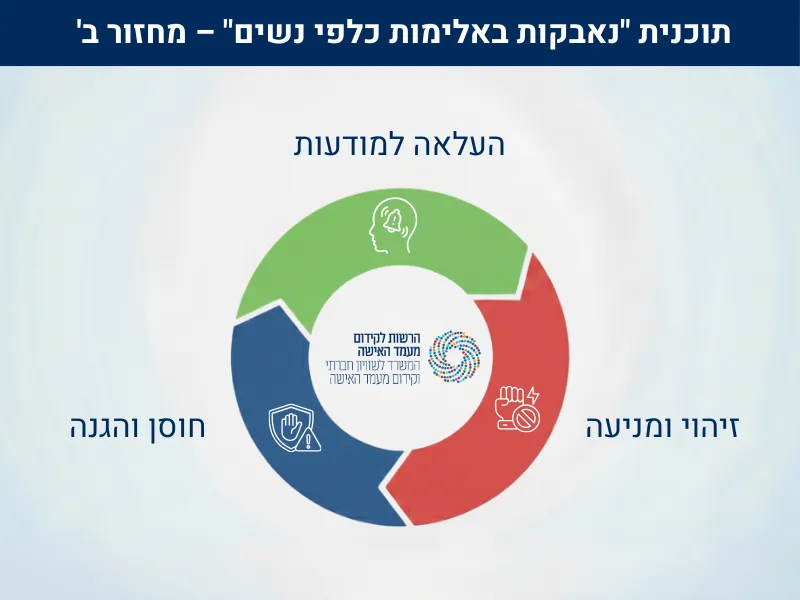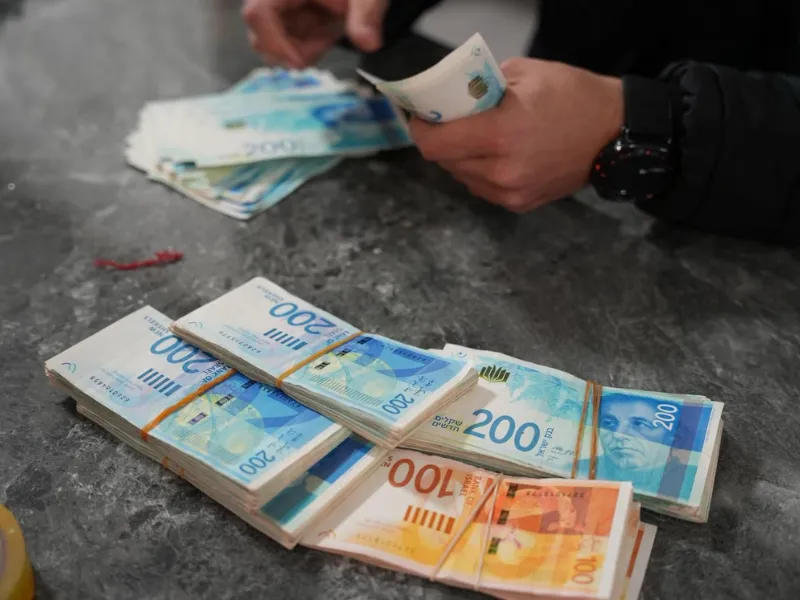Jerusalem, 23 October, 2025 (TPS-IL) — maccabi tel Aviv’s decision to decline any allocation of tickets for away fans at next month’s match against Aston Villa in Birmingham has provoked mixed reactions. This announcement came at a time when the British government was attempting to overturn an earlier ban on Maccabi Tel Aviv fans attending the match.
Maccabi Tel Aviv explained that, as a result of hate-filled falsehoods, a toxic atmosphere had been created, calling into serious doubt the safety of fans wishing to attend.
‘Inflammatory rhetoric and half-truths are never healthy, but the remarks being generated in this particular case are of the most concerning variety. Not for Maccabi Tel Aviv or football, but for the sake of society and its underlying values, the agendas involved here should be examined more closely’, the Club underlined.
The Israeli club also denounced efforts by ‘various entrenched groups to ‘malign the Maccabi Tel Aviv fan base, most of whom have no truck with racism or hooliganism of any kind, and to exploit isolated incidents for their own social and political ends’.
The club stated that the latest example of this is the claim tha the Tel Aviv police’s decision to cancel Sunday’s derby match is being attributed to Maccabi Tel Aviv fans.
‘It was not,’ the Club added.
Maccabi Tel Aviv was referring to the cancellation of the Hapoel Tel Aviv – Maccabi Tel Aviv derby on 19 October, which was used to justify the ban on maccabi fans from the match with Aston Villa.
This decision caused shock in Israel and worldwide, as there was no justification for it. UK Prime Minister Keir Starmer called it a ‘wrong decision’, emphasising that ‘the role of the police is to ensure that all fans can enjoy the match without fear of violence or intimidation’. Kemi Badenoch, the Conservative leader, called it a ‘national disgrace’, and Simon Foster, the West Midlands police and crime commissioner, called for an ‘urgent review of the decision’.
In Israel, President Herzog was among many who pointed out that the decision “reflects the rise of anti-Semitism, where Jews are punished for their identity”.
Even UEFA (the Union of European Football Associations) said that it ‘regrets the decision and supports efforts to ensure a safe match with all fans present’.
Following the uproar and the cancellation of the Tel Aviv derby on Sunday, statements began to emerge justifying the Maccabi fans ban on the Birmingham match.
Apart from politicians such as British MPs Ayub Khan and Richard Burgon, who are known for their anti-Israel bias, several UK media outlets, including Sky News, reported on the same evening that ‘Maccabi Tel Aviv fans are infamous for their violent behaviour’.
West Midlands Police implied that the risks for the Birmingham fixture had been heightened by stating that they were ‘contacting Israeli authorities post-derby to assess Maccabi fans’ role in the violence’.
However, Maccabi Tel Aviv fans have no special record of violence and hooliganism that sets them apart from other major football clubs.
The Tel Aviv Club was particularly angered by the fact that its fans were not responsible for the cancellation.
Videos that TPS-IL The Press Service of Israel possesses clearly show that flares were thrown into the stadium by Hapoel Tel Aviv fans. Maccabi Tel Aviv fans did not even participate.
Avraham, a Maccabi Tel Aviv fan who spoke to TPS-IL, told us that, apart from the flares thrown into the stadium which injured three police officers and prompted police intervention, the majority of the Hapoel Tel Aviv fans were also not misbehaving. ‘It was a beautiful atmosphere until that point!’ he said.
The video footage we obtained bears witness to that. Even after the Hapoel Tel Aviv fans — whose vendetta with the Minister of National Security, Ben Gvir, is well known — started clashing with the police, the Maccabi Tel Aviv fans did not join in. They had no reason to anyway.
Yet this unfortunate incident was used to demonise not only Maccabi Tel Aviv fans, but also Israelis in general, at a time when antisemitism is on the rise in Europe and the UK.
These were the ‘hate-filled falsehoods’ that Maccabi Tel Aviv referred to when explaining its decision not to send its fans to the UK, even if the ban was lifted.





